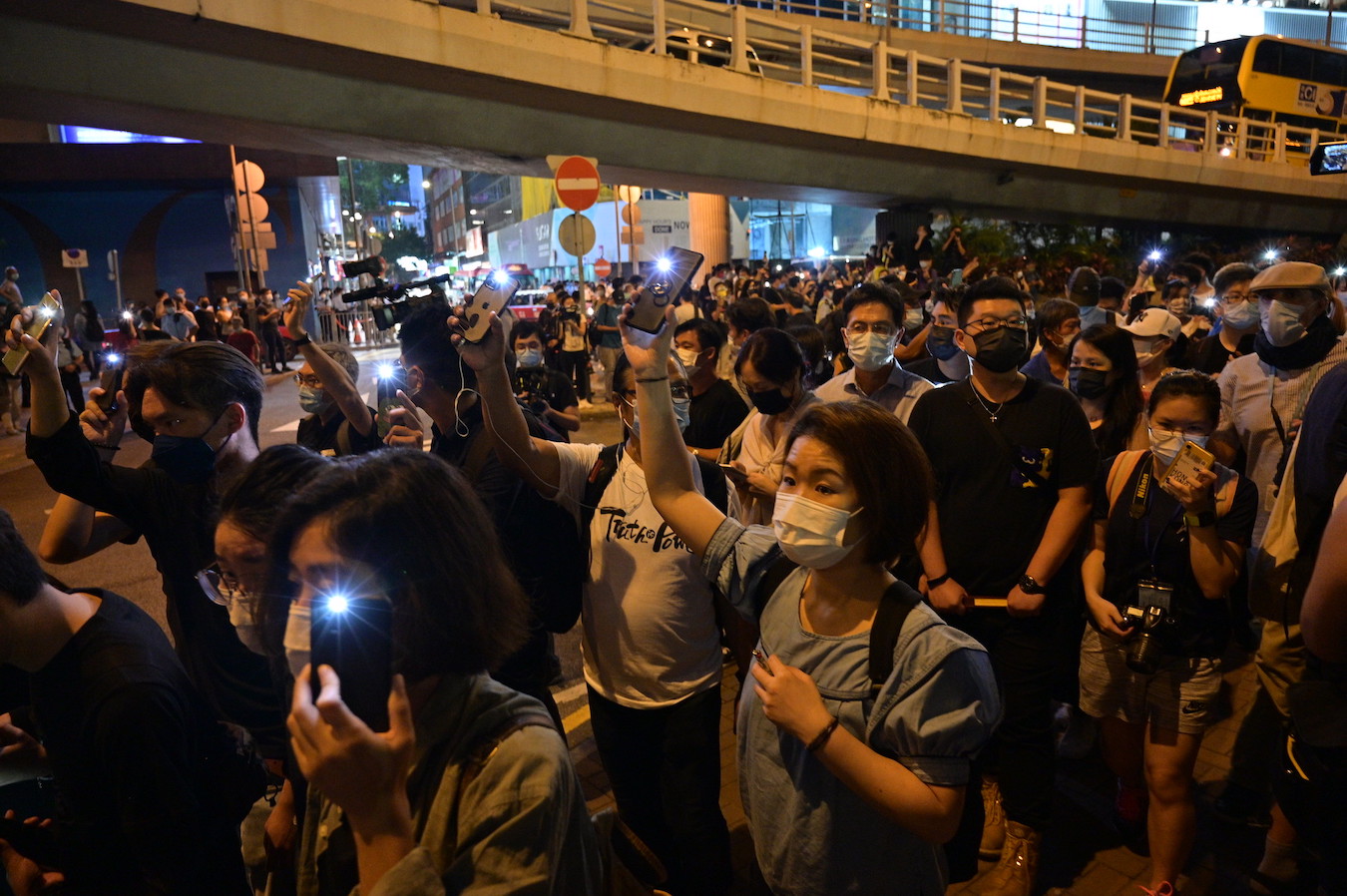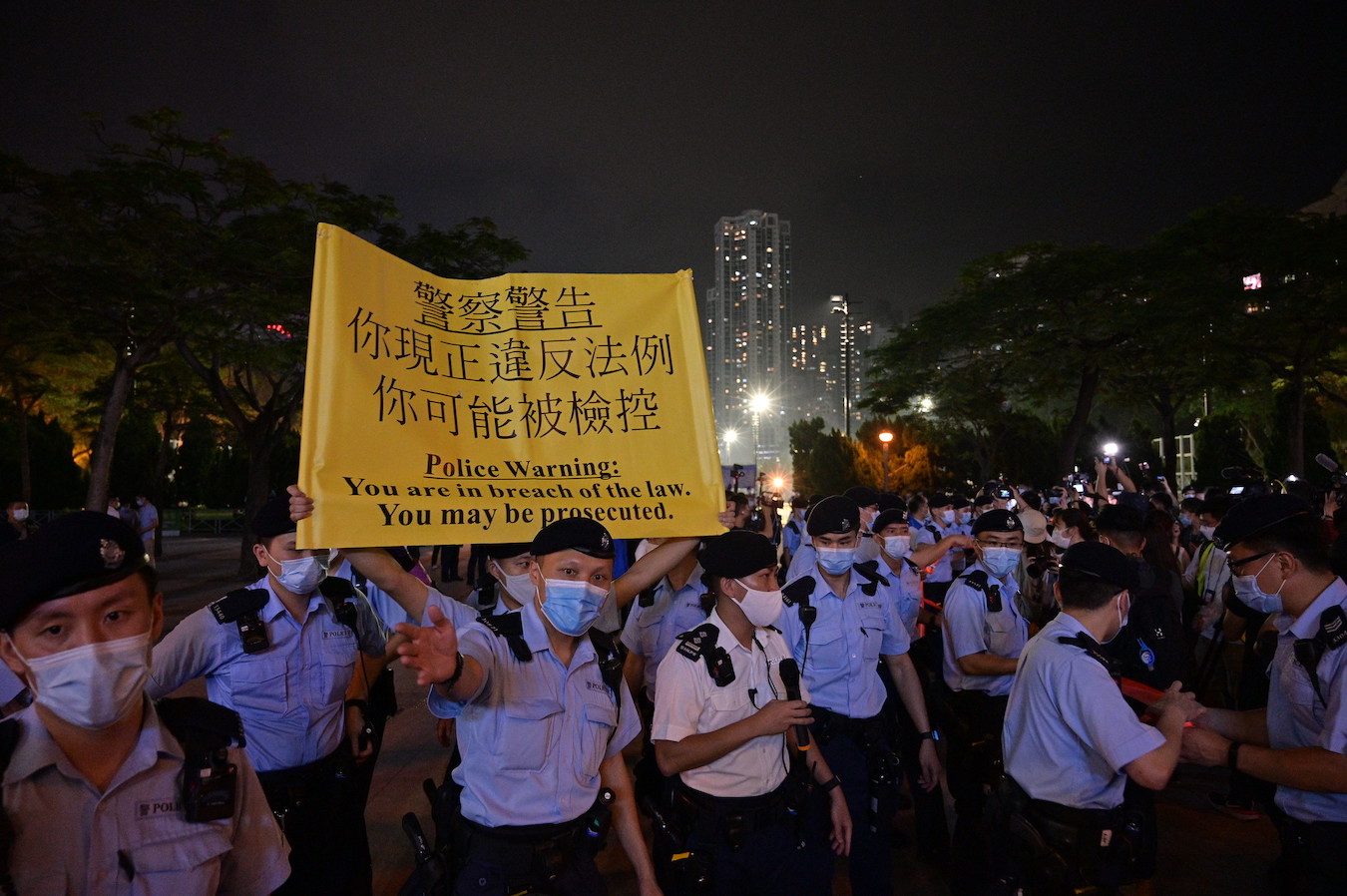by Brian Hioe
語言:
English
Photo Credit: Studio Incendo/Flickr/CC BY 2.0
47 HIGH-PROFILE Hong Kong activists may face trial without a jury in the first case of its kind in recent memory.
News that the 47 activists will not have trials with juries came after a media ban was lifted. Current reports suggest that Benny Tai, one of Occupy Central’s primary three figures, former legislator Au Nok-hin, former district councilors Chiu Ka-yin and Chung Kam-lun, as well as pro-democracy activist Gordon Ng Ching-hang will be charged as the main targets in the lineup of defendants.
Charges are carried out under Hong Kong’s National Security Law, with punishments of a minimum of three years for “active participants” and up to life imprisonment. As the National Security Law is in many ways still untested, some news reports suggest that Beijing may seek life imprisonment for the five “primary organizers.”
 Photo credit: Studio Incendo/Flickr/CC BY 2.0
Photo credit: Studio Incendo/Flickr/CC BY 2.0
This is the largest security case to date under the National Security Law, with Beijing likely hoping to set an example against future acts of political dissidence. While bail was previously granted to some defendants, bail has also been revoked for others.
The youngest of the defendants is 24, while the oldest is 66. Given how heavy charges are facing defendants, it is expected that 29 of them will plead guilty. This includes Joshua Wong, perhaps Hong Kong’s best-known political activist. Some of the defendants are former lawmakers. It has also been noted that the defendants represent a variety of ideologies, ranging from moderate pro-democracy figures to localists. Beijing clearly lumps together most pro-Hong Kong activists within the same ideological framework at this point.
For its part, Beijing frames the actions of the 47 defendants as a radical ploy to destabilize Hong Kong, drawing on the ideology of “mutual destruction” fomented by Benny Tai. This proves far from Tai’s ideology, seeing as Tai is not a localist, and had moderate views on self-determination for Hong Kong. Yet evidently, for Hong Kong and Chinese authorities, the attempt is made to depict all Hong Kong activists as dangerous radicals.
In particular, the 47 defendants are facing charges over organizing primaries for the pro-democracy camp to decide on its choice of candidates. Although this was allowed in the past, that this is the main charge Beijing is using against the defendants indicates Beijing’s shifting red lines, as well as to what extent electoral freedoms have deteriorated in Hong Kong.
Indeed, it should be clear from this that the Chinese government never had any intention of leaving Hong Kong’s system of government intact for fifty years, in that even having primaries to decide on pro-Democracy candidates is framed as a violation of national security law. But to this extent, this is illustrative of not only to what extent previously acceptable behavior in Hong Kong is now framed as sedition or attempts to subvert the state.
 Photo credit: Studio Incendo/Flickr/CC BY 2.0
Photo credit: Studio Incendo/Flickr/CC BY 2.0
It is to be seen what takes place next for Hong Kong, then. Lengthy sentences can be expected, particularly seeing as newly appointed Chief Executive John Lee oversaw the police response to the 2019 Hong Kong protests as Secretary for Security. Lee might be hoping for a show of force, seeing as he only assumed office in July, which may also aim to impress his masters in Beijing.
Lee was notably Beijing’s preferred candidate in an election that saw no other contestants. Beijing may have preferred that a former security official take on Hong Kong’s highest political office in order to maintain order in Hong Kong.
Ironically, this, too, reflects the further deterioration of democracy in Hong Kong. Chief Executive elections have never been open to the public, but are instead elected by a Chief Executive election committee that has historically consisted of 1,200 members until its expansion to 1,500 members after election reforms in 2021. Nevertheless, it proves significant that Lee did not see any challengers from among pro-Beijing politicians, who waited for Beijing to signal its preferences instead of throwing their hats into the ring. But the choice of Lee signals that the actions of the Hong Kong government will continue to be hardline in nature and this bodes poorly for political dissidence in Hong Kong.

